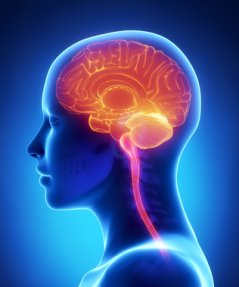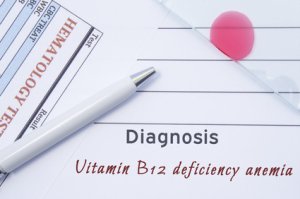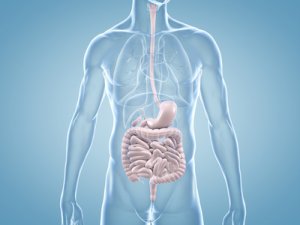afterLoad (456.47KB) (442μs)
afterInitialise (1.27MB) (75.14ms)
afterRoute (857.48KB) (20.99ms)
beforeRenderComponent com_content (36.71KB) (297μs)
Before Access::preloadComponents (all components) (69.88KB) (7.4ms)
After Access::preloadComponents (all components) (98.07KB) (8.68ms)
Before Access::preloadPermissions (com_content) (1.6KB) (14μs)
After Access::preloadPermissions (com_content) (3.29MB) (38.3ms)
Before Access::getAssetRules (id:62 name:com_content.category.20) (130.65KB) (117μs)
After Access::getAssetRules (id:62 name:com_content.category.20) (7.38KB) (52μs)
Before Access::getAssetRules (id:8 name:com_content) (51.77KB) (73.95ms)
After Access::getAssetRules (id:8 name:com_content) (6.17KB) (30μs)
afterRenderComponent com_content (1.39MB) (300ms)
afterDispatch (32.63KB) (10.97ms)
beforeRenderRawModule mod_articles_category (READ MORE...) (350.81KB) (12.13ms)
afterRenderRawModule mod_articles_category (READ MORE...) (84.8KB) (192ms)
beforeRenderRawModule mod_tags_popular (Search) (4.81KB) (26μs)
afterRenderRawModule mod_tags_popular (Search) (6.59KB) (53.27ms)
beforeRenderRawModule mod_custom (BOOST YOUR IMMUNE DEFENSE) (960B) (26μs)
afterRenderRawModule mod_custom (BOOST YOUR IMMUNE DEFENSE) (4.2KB) (220μs)
beforeRenderRawModule mod_custom (Are you taking supplements) (736B) (14μs)
afterRenderRawModule mod_custom (Are you taking supplements) (1.03KB) (26μs)
beforeRenderRawModule mod_articles_category (Get additionel and more detailed knowledge about) (8.41KB) (21μs)
afterRenderRawModule mod_articles_category (Get additionel and more detailed knowledge about) (44.45KB) (5.44ms)
beforeRenderRawModule mod_custom (Antiaging) (6.97KB) (27μs)
afterRenderRawModule mod_custom (Antiaging) (1KB) (40μs)
beforeRenderRawModule mod_custom (Exercise) (720B) (11μs)
afterRenderRawModule mod_custom (Exercise) (1.02KB) (22μs)
beforeRenderRawModule mod_custom (Check this before you buy a Q10 product) (752B) (9μs)
afterRenderRawModule mod_custom (Check this before you buy a Q10 product) (944B) (19μs)
beforeRenderModule mod_articles_category (READ MORE...) (267.89KB) (4.15ms)
afterRenderModule mod_articles_category (READ MORE...) (1.25KB) (61μs)
beforeRenderModule mod_tags_popular (Search) (5.17KB) (15μs)
afterRenderModule mod_tags_popular (Search) (2.52KB) (183μs)
beforeRenderModule mod_custom (BOOST YOUR IMMUNE DEFENSE) (1.31KB) (15μs)
afterRenderModule mod_custom (BOOST YOUR IMMUNE DEFENSE) (1.28KB) (29μs)
beforeRenderModule mod_custom (Are you taking supplements) (352B) (10μs)
afterRenderModule mod_custom (Are you taking supplements) (1.28KB) (22μs)
beforeRenderModule mod_articles_category (Get additionel and more detailed knowledge about) (8.03KB) (17μs)
afterRenderModule mod_articles_category (Get additionel and more detailed knowledge about) (1.31KB) (21μs)
beforeRenderModule mod_custom (Antiaging) (7.33KB) (10μs)
afterRenderModule mod_custom (Antiaging) (1.27KB) (20μs)
beforeRenderModule mod_custom (Exercise) (336B) (9μs)
afterRenderModule mod_custom (Exercise) (1.25KB) (19μs)
beforeRenderModule mod_custom (Check this before you buy a Q10 product) (352B) (9μs)
afterRenderModule mod_custom (Check this before you buy a Q10 product) (1.28KB) (20μs)
beforeRenderRawModule mod_menu (Main menu-US) (28.53KB) (514μs)
afterRenderRawModule mod_menu (Main menu-US) (157.05KB) (1.4ms)
beforeRenderModule mod_menu (Main menu-US) (720B) (5μs)
afterRenderModule mod_menu (Main menu-US) (4.36KB) (59μs)
beforeRenderRawModule mod_languages (Sprogskift) (3.44KB) (16μs)
afterRenderRawModule mod_languages (Sprogskift) (29.88KB) (1.55ms)
beforeRenderModule mod_languages (Sprogskift) (720B) (5μs)
afterRenderModule mod_languages (Sprogskift) (5.31KB) (21μs)
beforeRenderRawModule mod_finder () (6.34KB) (11μs)
afterRenderRawModule mod_finder () (154.54KB) (1.89ms)
beforeRenderModule mod_finder () (704B) (5μs)
afterRenderModule mod_finder () (3.29KB) (33μs)
beforeRenderRawModule mod_custom () (6.62KB) (152μs)
afterRenderRawModule mod_custom () (90.55KB) (799μs)
beforeRenderModule mod_custom () (704B) (5μs)
afterRenderModule mod_custom () (1.23KB) (51μs)
beforeRenderRawModule mod_menu (Main menu-US) (5.07KB) (98μs)
afterRenderRawModule mod_menu (Main menu-US) (5.8KB) (666μs)
beforeRenderModule mod_menu (Main menu-US) (720B) (4μs)
afterRenderModule mod_menu (Main menu-US) (3.75KB) (65μs)
beforeRenderRawModule mod_languages (Sprogskift Mobil) (912B) (18μs)
afterRenderRawModule mod_languages (Sprogskift Mobil) (3.89KB) (645μs)
beforeRenderModule mod_languages (Sprogskift Mobil) (720B) (3μs)
afterRenderModule mod_languages (Sprogskift Mobil) (1.27KB) (31μs)
beforeRenderRawModule mod_finder () (2.3KB) (9μs)
afterRenderRawModule mod_finder () (6.25KB) (516μs)
beforeRenderModule mod_finder () (704B) (4μs)
afterRenderModule mod_finder () (1.23KB) (42μs)
beforeRenderRawModule mod_custom () (8.66KB) (209μs)
afterRenderRawModule mod_custom () (904B) (134μs)
beforeRenderModule mod_custom () (704B) (3μs)
afterRenderModule mod_custom () (2.43KB) (24μs)
beforeRenderRawModule mod_custom () (688B) (80μs)
afterRenderRawModule mod_custom () (896B) (100μs)
beforeRenderModule mod_custom () (704B) (3μs)
afterRenderModule mod_custom () (2.71KB) (22μs)
afterRender (180.9KB) (3.37ms)
| 1 x afterRenderComponent com_content (1.39MB) (36.55%) | 299.72ms |
| 1 x afterRenderRawModule mod_articles_category (READ MORE...) (84.8KB) (23.44%) | 192.22ms |
| 1 x afterInitialise (1.27MB) (9.16%) | 75.14ms |
| 1 x Before Access::getAssetRules (id:8 name:com_content) (51.77KB) (9.02%) | 73.95ms |
| 1 x afterRenderRawModule mod_tags_popular (Search) (6.59KB) (6.5%) | 53.27ms |
| 1 x After Access::preloadPermissions (com_content) (3.29MB) (4.67%) | 38.30ms |
| 1 x afterRoute (857.48KB) (2.56%) | 20.99ms |
| 1 x beforeRenderRawModule mod_articles_category (READ MORE...) (350.81KB) (1.48%) | 12.13ms |
| 1 x afterDispatch (32.63KB) (1.34%) | 10.97ms |
| 1 x After Access::preloadComponents (all components) (98.07KB) (1.06%) | 8.68ms |
| 1 x Before Access::preloadComponents (all components) (69.88KB) (0.9%) | 7.40ms |
| 1 x afterRenderRawModule mod_articles_category (Get additionel and more detailed knowledge about) (44.45KB) (0.66%) | 5.44ms |
| 1 x beforeRenderModule mod_articles_category (READ MORE...) (267.89KB) (0.51%) | 4.15ms |
| 1 x afterRender (180.9KB) (0.41%) | 3.37ms |
| 1 x afterRenderRawModule mod_finder () (154.54KB) (0.23%) | 1.89ms |
| 1 x afterRenderRawModule mod_languages (Sprogskift) (29.88KB) (0.19%) | 1.55ms |
| 1 x afterRenderRawModule mod_menu (Main menu-US) (157.05KB) (0.17%) | 1.40ms |
| 1 x afterRenderRawModule mod_custom () (90.55KB) (0.1%) | 799μs |
| 1 x afterRenderRawModule mod_menu (Main menu-US) (5.8KB) (0.08%) | 666μs |
| 1 x afterRenderRawModule mod_languages (Sprogskift Mobil) (3.89KB) (0.08%) | 645μs |
| 1 x afterRenderRawModule mod_finder () (6.25KB) (0.06%) | 516μs |
| 1 x beforeRenderRawModule mod_menu (Main menu-US) (28.53KB) (0.06%) | 514μs |
| 1 x afterLoad (456.47KB) (0.05%) | 442μs |
| 1 x beforeRenderComponent com_content (36.71KB) (0.04%) | 297μs |
| 1 x afterRenderRawModule mod_custom (BOOST YOUR IMMUNE DEFENSE) (4.2KB) (0.03%) | 220μs |
| 1 x beforeRenderRawModule mod_custom () (8.66KB) (0.03%) | 209μs |
| 1 x afterRenderModule mod_tags_popular (Search) (2.52KB) (0.02%) | 183μs |
| 1 x beforeRenderRawModule mod_custom () (6.62KB) (0.02%) | 152μs |
| 1 x afterRenderRawModule mod_custom () (904B) (0.02%) | 134μs |
| 1 x Before Access::getAssetRules (id:62 name:com_content.category.20) (130.65KB) (0.01%) | 117μs |
| 1 x afterRenderRawModule mod_custom () (896B) (0.01%) | 100μs |
| 1 x beforeRenderRawModule mod_menu (Main menu-US) (5.07KB) (0.01%) | 98μs |
| 1 x beforeRenderRawModule mod_custom () (688B) (0.01%) | 80μs |
| 1 x afterRenderModule mod_menu (Main menu-US) (3.75KB) (0.01%) | 65μs |
| 1 x afterRenderModule mod_articles_category (READ MORE...) (1.25KB) (0.01%) | 61μs |
| 1 x afterRenderModule mod_menu (Main menu-US) (4.36KB) (0.01%) | 59μs |
| 1 x After Access::getAssetRules (id:62 name:com_content.category.20) (7.38KB) (0.01%) | 52μs |
| 1 x afterRenderModule mod_custom () (1.23KB) (0.01%) | 51μs |
| 1 x afterRenderModule mod_finder () (1.23KB) (0.01%) | 42μs |
| 1 x afterRenderRawModule mod_custom (Antiaging) (1KB) (0%) | 40μs |
| 1 x afterRenderModule mod_finder () (3.29KB) (0%) | 33μs |
| 1 x afterRenderModule mod_languages (Sprogskift Mobil) (1.27KB) (0%) | 31μs |
| 1 x After Access::getAssetRules (id:8 name:com_content) (6.17KB) (0%) | 30μs |
| 1 x afterRenderModule mod_custom (BOOST YOUR IMMUNE DEFENSE) (1.28KB) (0%) | 29μs |
| 1 x beforeRenderRawModule mod_custom (Antiaging) (6.97KB) (0%) | 27μs |
| 1 x beforeRenderRawModule mod_tags_popular (Search) (4.81KB) (0%) | 26μs |
| 1 x beforeRenderRawModule mod_custom (BOOST YOUR IMMUNE DEFENSE) (960B) (0%) | 26μs |
| 1 x afterRenderRawModule mod_custom (Are you taking supplements) (1.03KB) (0%) | 26μs |
| 1 x afterRenderModule mod_custom () (2.43KB) (0%) | 24μs |
| 1 x afterRenderRawModule mod_custom (Exercise) (1.02KB) (0%) | 22μs |
| 1 x afterRenderModule mod_custom (Are you taking supplements) (1.28KB) (0%) | 22μs |
| 1 x afterRenderModule mod_custom () (2.71KB) (0%) | 22μs |
| 1 x beforeRenderRawModule mod_articles_category (Get additionel and more detailed knowledge about) (8.41KB) (0%) | 21μs |
| 1 x afterRenderModule mod_articles_category (Get additionel and more detailed knowledge about) (1.31KB) (0%) | 21μs |
| 1 x afterRenderModule mod_languages (Sprogskift) (5.31KB) (0%) | 21μs |
| 1 x afterRenderModule mod_custom (Antiaging) (1.27KB) (0%) | 20μs |
| 1 x afterRenderModule mod_custom (Check this before you buy a Q10 product) (1.28KB) (0%) | 20μs |
| 1 x afterRenderRawModule mod_custom (Check this before you buy a Q10 product) (944B) (0%) | 19μs |
| 1 x afterRenderModule mod_custom (Exercise) (1.25KB) (0%) | 19μs |
| 1 x beforeRenderRawModule mod_languages (Sprogskift Mobil) (912B) (0%) | 18μs |
| 1 x beforeRenderModule mod_articles_category (Get additionel and more detailed knowledge about) (8.03KB) (0%) | 17μs |
| 1 x beforeRenderRawModule mod_languages (Sprogskift) (3.44KB) (0%) | 16μs |
| 1 x beforeRenderModule mod_tags_popular (Search) (5.17KB) (0%) | 15μs |
| 1 x beforeRenderModule mod_custom (BOOST YOUR IMMUNE DEFENSE) (1.31KB) (0%) | 15μs |
| 1 x beforeRenderRawModule mod_custom (Are you taking supplements) (736B) (0%) | 14μs |
| 1 x Before Access::preloadPermissions (com_content) (1.6KB) (0%) | 14μs |
| 1 x beforeRenderRawModule mod_custom (Exercise) (720B) (0%) | 11μs |
| 1 x beforeRenderRawModule mod_finder () (6.34KB) (0%) | 11μs |
| 3 x beforeRenderModule mod_custom () (704B) (0%) | 11μs |
| 1 x beforeRenderModule mod_custom (Are you taking supplements) (352B) (0%) | 10μs |
| 1 x beforeRenderModule mod_custom (Antiaging) (7.33KB) (0%) | 10μs |
| 1 x beforeRenderRawModule mod_custom (Check this before you buy a Q10 product) (752B) (0%) | 9μs |
| 1 x beforeRenderModule mod_custom (Exercise) (336B) (0%) | 9μs |
| 2 x beforeRenderModule mod_menu (Main menu-US) (720B) (0%) | 9μs |
| 2 x beforeRenderModule mod_finder () (704B) (0%) | 9μs |
| 1 x beforeRenderModule mod_custom (Check this before you buy a Q10 product) (352B) (0%) | 9μs |
| 1 x beforeRenderRawModule mod_finder () (2.3KB) (0%) | 9μs |
| 1 x beforeRenderModule mod_languages (Sprogskift) (720B) (0%) | 5μs |
| 1 x beforeRenderModule mod_languages (Sprogskift Mobil) (720B) (0%) | 3μs |
 Vitamin C is extremely important for the brain’s blood vessels, nerve cells, neurotransmitters, and connective tissue. An estimated 10 percent of the adult population is vitamin C deficient without specific symptoms. According to a scientific article in the Danish journal Aktuel Videnskab, vitamin C deficiency during pregnancy may harm brain development in the fetus.
Vitamin C is extremely important for the brain’s blood vessels, nerve cells, neurotransmitters, and connective tissue. An estimated 10 percent of the adult population is vitamin C deficient without specific symptoms. According to a scientific article in the Danish journal Aktuel Videnskab, vitamin C deficiency during pregnancy may harm brain development in the fetus.







 All our cells contain different selenium compounds that support a number of vital functions, and which have several cancer-fighting mechanisms. As an antioxidant, selenium prevents iron from developing some of the most harmful free radicals that can damage cellular DNA and lead to uncontrolled cell division. This is why a selenium deficiency combined with excess iron is a lethal cocktail. Although iron is essential, it is vital that we do not get too much. It is also important to get plenty of selenium from food and/or supplements and in a form that the body can absorb and utilize in each and every cell in order to be properly protected against cancerous substances.
All our cells contain different selenium compounds that support a number of vital functions, and which have several cancer-fighting mechanisms. As an antioxidant, selenium prevents iron from developing some of the most harmful free radicals that can damage cellular DNA and lead to uncontrolled cell division. This is why a selenium deficiency combined with excess iron is a lethal cocktail. Although iron is essential, it is vital that we do not get too much. It is also important to get plenty of selenium from food and/or supplements and in a form that the body can absorb and utilize in each and every cell in order to be properly protected against cancerous substances. Nothing beats a good night’s sleep. Still, sleep disturbances are widespread, and surprisingly many people struggle through the day, trying to survive on far too much coffee and other stimulants – and they cannot do anything about the problem. It turns out that many vegetarians, users of birth control pills, older people, and diabetics suffer from sleep problems because they lack vitamin B12. A vitamin B12 deficiency may also affect the nervous system and memory so it is vital to get enough of this nutrient.
Nothing beats a good night’s sleep. Still, sleep disturbances are widespread, and surprisingly many people struggle through the day, trying to survive on far too much coffee and other stimulants – and they cannot do anything about the problem. It turns out that many vegetarians, users of birth control pills, older people, and diabetics suffer from sleep problems because they lack vitamin B12. A vitamin B12 deficiency may also affect the nervous system and memory so it is vital to get enough of this nutrient. Even minor zinc deficiencies may cause poor digestion, infections, skin problems, and fatigue – and many other diseases may occur along the way. A new study shows that a diet with as little as four extra mg of zinc daily may strengthen cellular DNA and help protect the body. The four milligrams of zinc are about the same as populations with deficiency symptoms can get by eating zinc-enriched wheat and rice.
Even minor zinc deficiencies may cause poor digestion, infections, skin problems, and fatigue – and many other diseases may occur along the way. A new study shows that a diet with as little as four extra mg of zinc daily may strengthen cellular DNA and help protect the body. The four milligrams of zinc are about the same as populations with deficiency symptoms can get by eating zinc-enriched wheat and rice. A team of scientists from Oregon State University in the United States has managed to explain why lack of vitamin E may cause neurological damage to the developing fetus, and why it increases the risk of spontaneous miscarriage. Their study is published in the science journal Free Radical Biology and Medicine and here, the scientists underline how important it is for both women who are pregnant and those plan pregnancy to get enough vitamin E.
A team of scientists from Oregon State University in the United States has managed to explain why lack of vitamin E may cause neurological damage to the developing fetus, and why it increases the risk of spontaneous miscarriage. Their study is published in the science journal Free Radical Biology and Medicine and here, the scientists underline how important it is for both women who are pregnant and those plan pregnancy to get enough vitamin E. It came as good news for vegetarians, vegans and sclerosis sufferers when Danish health authorities allowed strong vitamin B12 preparations on the market some years ago. It was also positive that the active methylated form of vitamin B12 was added to the list of approved ingredients.
It came as good news for vegetarians, vegans and sclerosis sufferers when Danish health authorities allowed strong vitamin B12 preparations on the market some years ago. It was also positive that the active methylated form of vitamin B12 was added to the list of approved ingredients. Cancer researchers from the University of Iowa in the United States have finally clarified how extremely high doses of vitamin C given as infusions are able to kill cancer cells. It turns out that the low levels of the enzyme, catalase, in cancer cells make them vulnerable to vitamin C’s ability to generate free radicals. That way, vitamin C works like a type of chemotherapy, while, at the same time, stimulating normal activity in healthy cells. We are dealing with a treatment that is virtually devoid of side effects.
Cancer researchers from the University of Iowa in the United States have finally clarified how extremely high doses of vitamin C given as infusions are able to kill cancer cells. It turns out that the low levels of the enzyme, catalase, in cancer cells make them vulnerable to vitamin C’s ability to generate free radicals. That way, vitamin C works like a type of chemotherapy, while, at the same time, stimulating normal activity in healthy cells. We are dealing with a treatment that is virtually devoid of side effects. Every day, the intestinal immune system has to defend itself against hordes of microbes and toxins. If it fails to function optimally, there is an increased risk of infections, allergies, and inflammatory diseases. More and more research reveals that essential nutrients help to control the intestinal immune defense. Also, new research shows how important a well-functioning immune system is for our digestion and health in general. This article takes a closer look at the vitamins that are known to be particularly important for the intestinal immune system. Another thing that is vital is to have adequate amounts of gastric juice.
Every day, the intestinal immune system has to defend itself against hordes of microbes and toxins. If it fails to function optimally, there is an increased risk of infections, allergies, and inflammatory diseases. More and more research reveals that essential nutrients help to control the intestinal immune defense. Also, new research shows how important a well-functioning immune system is for our digestion and health in general. This article takes a closer look at the vitamins that are known to be particularly important for the intestinal immune system. Another thing that is vital is to have adequate amounts of gastric juice. Millions of people who are overweight suffer from blood sugar imbalances and metabolic syndrome – often without being aware of it. A study shows that people with metabolic syndrome are severely vitamin E-deficient. This poses a serious threat to their health, as vitamin E is important for the liver, the cardiovascular system, the nervous system, and the body’s ability to protect its cells against oxidative stress and carcinogenic substances. The study, which is published in the American Journal of Clinical Nutrition, reveals that normal measurements of a person’s vitamin E status are misleading.
Millions of people who are overweight suffer from blood sugar imbalances and metabolic syndrome – often without being aware of it. A study shows that people with metabolic syndrome are severely vitamin E-deficient. This poses a serious threat to their health, as vitamin E is important for the liver, the cardiovascular system, the nervous system, and the body’s ability to protect its cells against oxidative stress and carcinogenic substances. The study, which is published in the American Journal of Clinical Nutrition, reveals that normal measurements of a person’s vitamin E status are misleading.